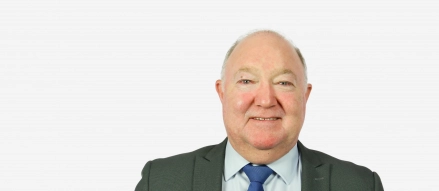
Take-outs from the 2018 Medium-Term Budget Policy Statement
South Africa’s gross domestic product (GDP) growth rate for the financial year was also revised downward from 1.5% to 0.7%. In light of this and the other points presented by the Minister today, the Mazars Tax Team discussed some of the most important points that taxpayers should take away from the 2018 Medium-Term Budget.
Corporate Taxes:
By Mike Teuchert, National Head of Taxation at Mazars
Corporate tax revenue collections were R6 billion lower than what was estimated, which is a result of the technical recession and in line with the current GDP growth outlook. Investment in South Africa’s corporate sector also continues to be strained, which is also a result of these developments.
On the positive side, the Minister has confirmed Government’s commitment to stimulate faster and more inclusive economic growth by strengthening private and public sector investment.
The other side of the Laffer Curve
By Tertius Troost, Tax Manager at Mazars
It is very possible that Government has reached the point of diminishing returns on the taxes imposed on South African taxpayers. According to the Minister, 2018 will be the first year since the 2008 financial crisis that tax revenue growth does not exceed GDP growth. While this may in large part be attributed to the massive shortfall in VAT collections, it could also lead one to speculate that the country has now passed the peak of the Laffer Curve. It is very possible that any further tax increases may progressively lead to decreased revenue being collected, and the revenue shortfall increasing over the coming years.
VAT
By Mike Teuchert, National Head of Taxation at Mazars
One of the biggest shocks of the 2018 Medium-Term Budget, was the reported R20 billion shortfall in VAT collection. The reason for this is the fact that SARS needs to deal with a refund backlog of around R11 billion, and around R9 billion in current refunds.
Both of these expenditures had not been anticipated at the start of the financial year, which is largely as a result of the legacy of inefficient operations at SARS during previous years. The delays in paying businesses the VAT refunds that they deserved have finally reached critical mass and SARS is now straining under the fallout of its past mistakes.
It should also be said that the R20 billion shortfall in VAT revenue is roughly the same as the additional revenue that the 1% increase in VAT was estimated to bring in. The impact of this shortfall would therefore have been much more devastating if Treasury had not increased VAT this year.
Zero VAT rated items
By Tertius Troost, Tax Manager at Mazars
Only three of the six suggested items will be zero-rated from 1 April 2019. These are sanitary pads, white bread flour and cake flour, which will cost Treasury an estimated R1.2 billion in revenue. This number is less than half of the cost of all suggested six items, and Treasury decided on the three cheapest items on the list to include.
This seems to confirm that Treasury is under significant pressure, and that there is simply no more money in the coffers to help alleviate the burden on the poor any further. The fact that there was no mention of chicken, which is deemed to be an expensive product to add to the list, also supports this statement.
The impact on the man in the street
By Bernard Sacks, Tax Partner at Mazars
The Minister indicated in the 2018 Medium-Term Budget Policy Statement that Treasury would avoid further increases to personal income tax, corporate income tax, and VAT next year, unless it is required by the economic environment. While this is one bit of good news for taxpayers, the question remains how Treasury then plans to plug the R27.4 billion revenue shortfall.
At the same time, the minister has commented that Government will continue to support efforts to implement tolls on roads. The Road Accident Fund also requires an additional injection of funds, which will be funded by further increases in the fuel levy.
It seems to indicate that while income taxes may not increase in next year, price increases such as these could still be common, and the cost of living for the man in the street is likely to increase significantly over the coming years. In addition, it seems that Treasury is looking to fill the revenue shortfall by adding to the South African debt levels, which could have a detrimental effect in the long term.
Lastly, it should be said that there is a possibility that the country may see a taxpayer revolt in one form or another. It may be in the form of more taxpayers refusing to pay tolls, or it may simply be in the form of more taxpayers leaving the country.
